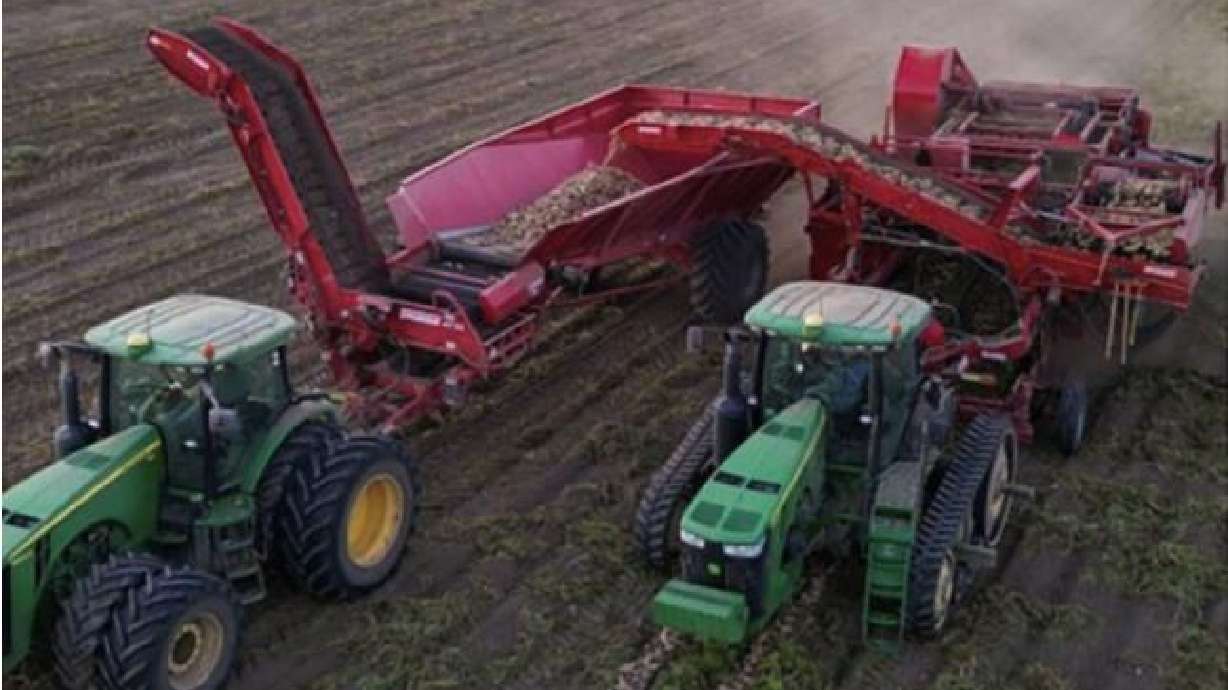IDAHO FALLS — Members of the Idaho agriculture sector say migrant workers are critical to Idaho’s economy, and immigration reform is needed to stay in operation.
afternoon. It was held in the Bennion Student Union Building on Idaho State University’s Idaho Falls campus. Rep. Mike Simpson was the featured speaker. He was unable to attend in person due to the House vote to end the government shutdown, but he did provide some remarks in a prerecorded video.
In the video, Simpson cited the Farm Workforce Modernization Act. It was introduced in the House several years ago and passed twice but has stalled in the Senate in recent years. It was reintroduced earlier this year, but has yet to go up for vote.
The legislation, according to its website, aims to “amend the Immigration and Nationality Act to provide for terms and conditions for nonimmigrant workers performing agricultural labor or services.”
The act, created in 1986, established the current H-2A visa program and allows migrants to apply for a permanent green card for temporary seasonal work. Their approval is contingent on having a clean record and being able to pass a background check
Although the bill has been on standby for the last four years, Simpson is hopeful the bill will finally be passed.
“I think we have the best chance that we have had to pass it right now under this administration,” Simpson said in his prerecorded remarks. “It’s one of my top priorities … to get this done.”
Zak Miller, CEO of the Idaho Farm Bureau Federation — a voluntary grassroots organization dedicated to strengthening agriculture and protecting the rights of its members — addressed the H-2A visa program at Thursday’s meeting. He said it has significant costs and regulation requirements that make it challenging for farmers to retain workers.
“It’s critical to U.S. agriculture … but it’s a bad program, and it’s not serving Idaho well,” Miller said.
Forum moderator Karole Honas cited an Idaho Department of Labor statistic, showing that 40% of Idaho’s workers are undocumented.
Miller pointed to a recent study showing that many of the undocumented workers have a lower criminal record than the average U.S. citizen.
While the majority of Idaho farmers support President Donald Trump’s effort to close the southern border and crack down on illegal immigration, Miller says the threat of deportation puts a scare into legal migrants and reduces the workforce.
“You get absenteeism up and down the community when there’s a threat,” Miller explained. “Hopefully, you’re seeing how dissatisfied ag is with the current state of labor. We’re not excited about playing chicken with federal agencies. We want a real solution.”
Rick Naerebout, CEO of the Idaho Dairymen’s Association, explained that migrants are crucial to the survival of Idaho farms.
“We can’t feed ourselves as a country if you eliminate this workforce,” Naerebout said.
Idaho has the fifth largest agriculture economy in the nation, according to data in Miller’s presentation. It provides a total of 377,343 jobs and more than $23 billion in wages.
The bulk of those jobs, according to Miller, are in eastern Idaho. His data shows more than 231,000 people work in the agriculture sector on this side of the state.
Despite hang-ups in the Senate in passing the Farm Workforce Modernization Act, Naerebout praises Idaho’s U.S. Sen. Mike Crapo for vigorous efforts in trying to push it through.
Miller says citizen engagement and involvement is the key to change, and Naerebout encourages people to contact state and federal lawmakers about it.
“Agriculture is still the backbone of our economy. Our communities don’t survive if we can’t figure out how to solve this problem,” Naerebout said.
The Key Takeaways for this article were generated with the assistance of large language models and reviewed by our editorial team. The article, itself, is solely human-written.
